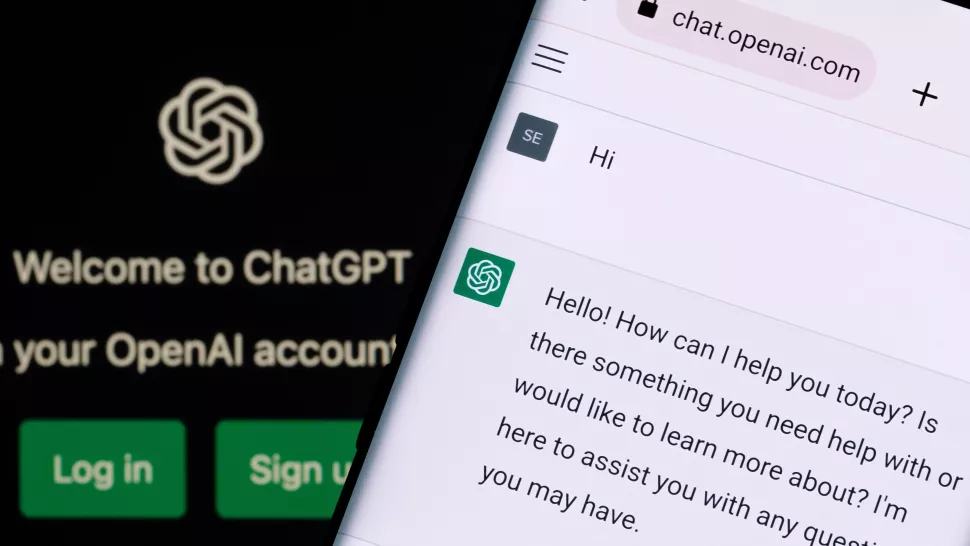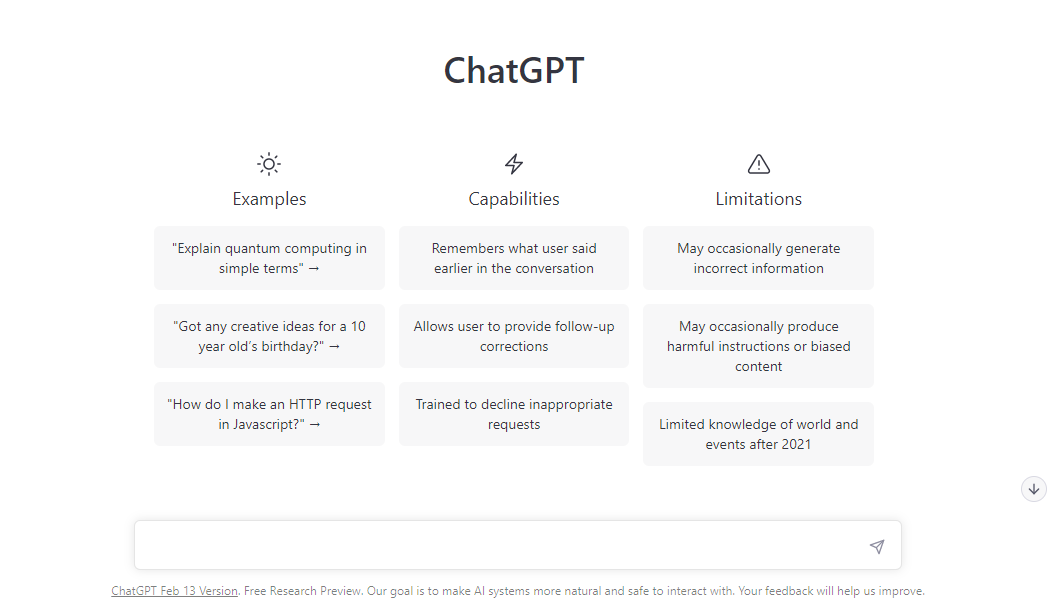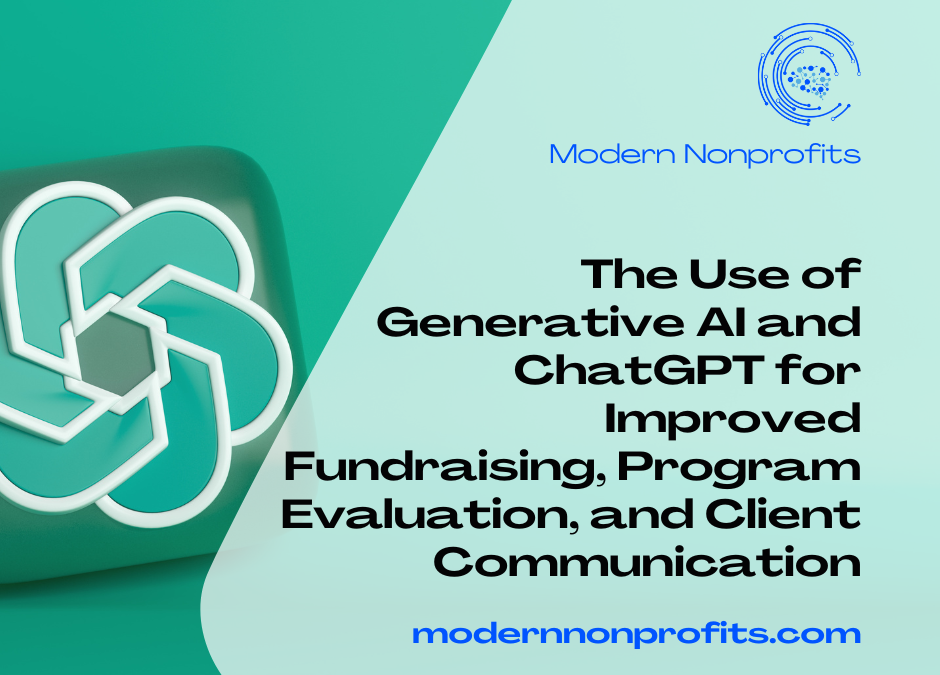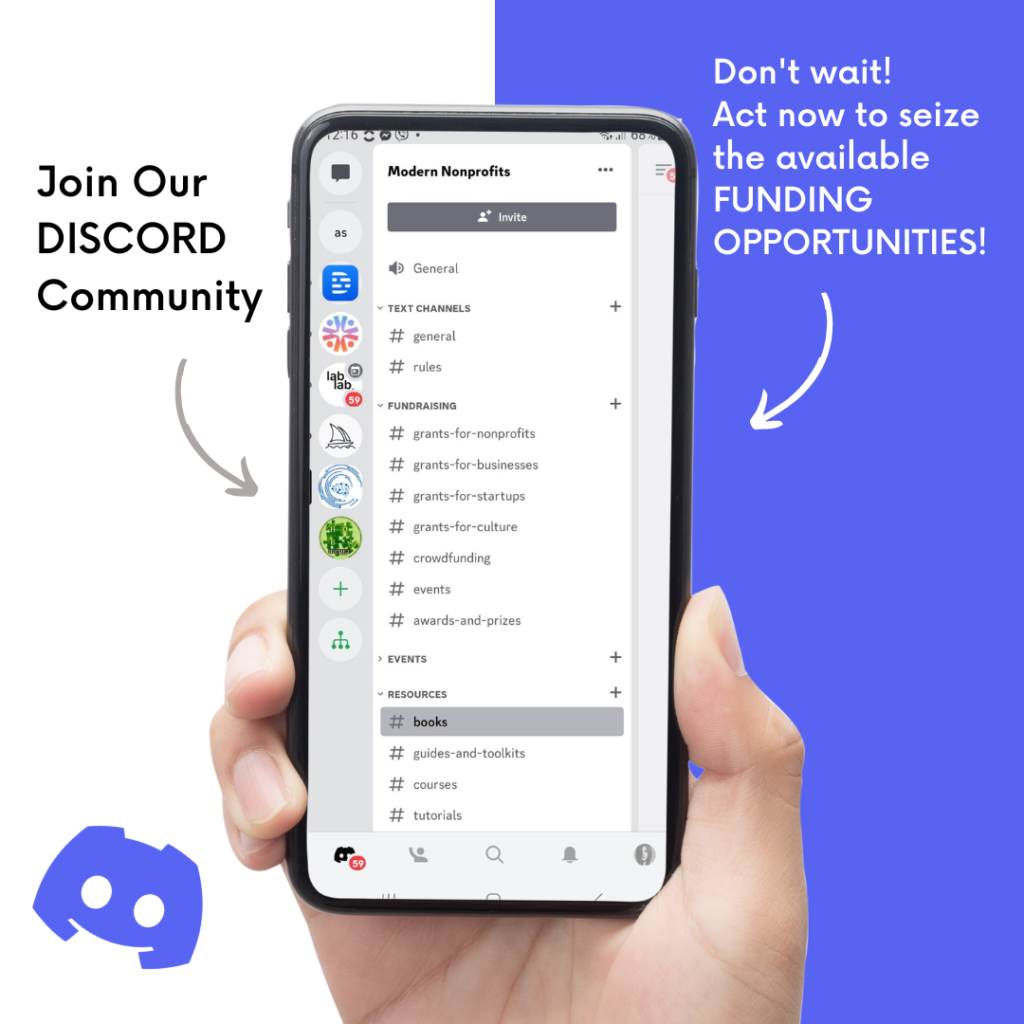Generative AI and ChatGPT have been gaining traction in recent years as powerful tools for a variety of applications. While many people associate these technologies with the corporate world, there are also many opportunities for nonprofits to benefit from the use of generative AI and ChatGPT.
Generative AI is a form of artificial intelligence that can create new content based on patterns learned from existing data. ChatGPT is a specific type of generative AI that specializes in generating human-like text responses to input. When used together, generative AI and ChatGPT can help nonprofits in a number of ways.

One potential application of generative AI and ChatGPT for nonprofits is in the area of fundraising. Nonprofits often rely on donations to fund their activities, and generating compelling fundraising content can be a challenge. However, with generative AI and ChatGPT, nonprofits can create fundraising campaigns that are tailored to their specific donor base. For example, they can use generative AI to create personalized emails that highlight the impact of the donor’s previous contributions, or ChatGPT to generate persuasive social media posts that encourage followers to donate.
Another potential use for generative AI and ChatGPT is in the area of program evaluation. Nonprofits often struggle to collect and analyze data on the effectiveness of their programs. With generative AI, nonprofits can analyze their program data and identify patterns that might not be apparent to human analysts. They can also use ChatGPT to generate reports that summarize the results of their program evaluations in a clear and concise way.

In addition, generative AI and ChatGPT can be used to improve communication with clients or beneficiaries. Nonprofits can use ChatGPT to create chatbots that can answer frequently asked questions or provide guidance to clients. This can help nonprofits provide better service to their clients, while also freeing up staff time for more complex tasks.
Of course, there are also potential ethical concerns associated with the use of generative AI and ChatGPT, especially when it comes to issues like privacy and bias. Nonprofits will need to carefully consider these concerns and take steps to mitigate any risks associated with using these technologies.
In conclusion, generative AI and ChatGPT offer many opportunities for nonprofits to improve their operations and increase their impact. Whether it’s through generating compelling fundraising content, analyzing program data, or improving communication with clients, these technologies can help nonprofits be more efficient and effective in achieving their missions. However, it’s important for nonprofits to approach the use of these technologies with caution and carefully consider the potential risks and ethical implications.



Hi there Anita. Your blog post on the use of generative AI and ChatGPT for improved fundraising program evaluation and client communication was a fascinating read! I was impressed with your deep understanding of the potential applications of AI in the nonprofit sector and how it can be leveraged to improve communication with clients and stakeholders. Your analysis of the benefits of using generative AI and ChatGPT for program evaluation and fundraising was insightful and left me excited about the possibilities of this technology. I want to commend you on your excellent writing and your ability to make a complex topic accessible to a broad audience.
Hi Dave, thank you for your kind words. I appreciate you finding my blog post to be interesting and informative. The nonprofit sector needs to investigate how AI technologies can be used to enhance beneficiary and stakeholder communication as it develops. I think nonprofits can improve their fundraising efforts and gain insightful knowledge about program evaluation by utilizing productive AI and ChatGPT. Once more, I appreciate you reading and commenting on my article.